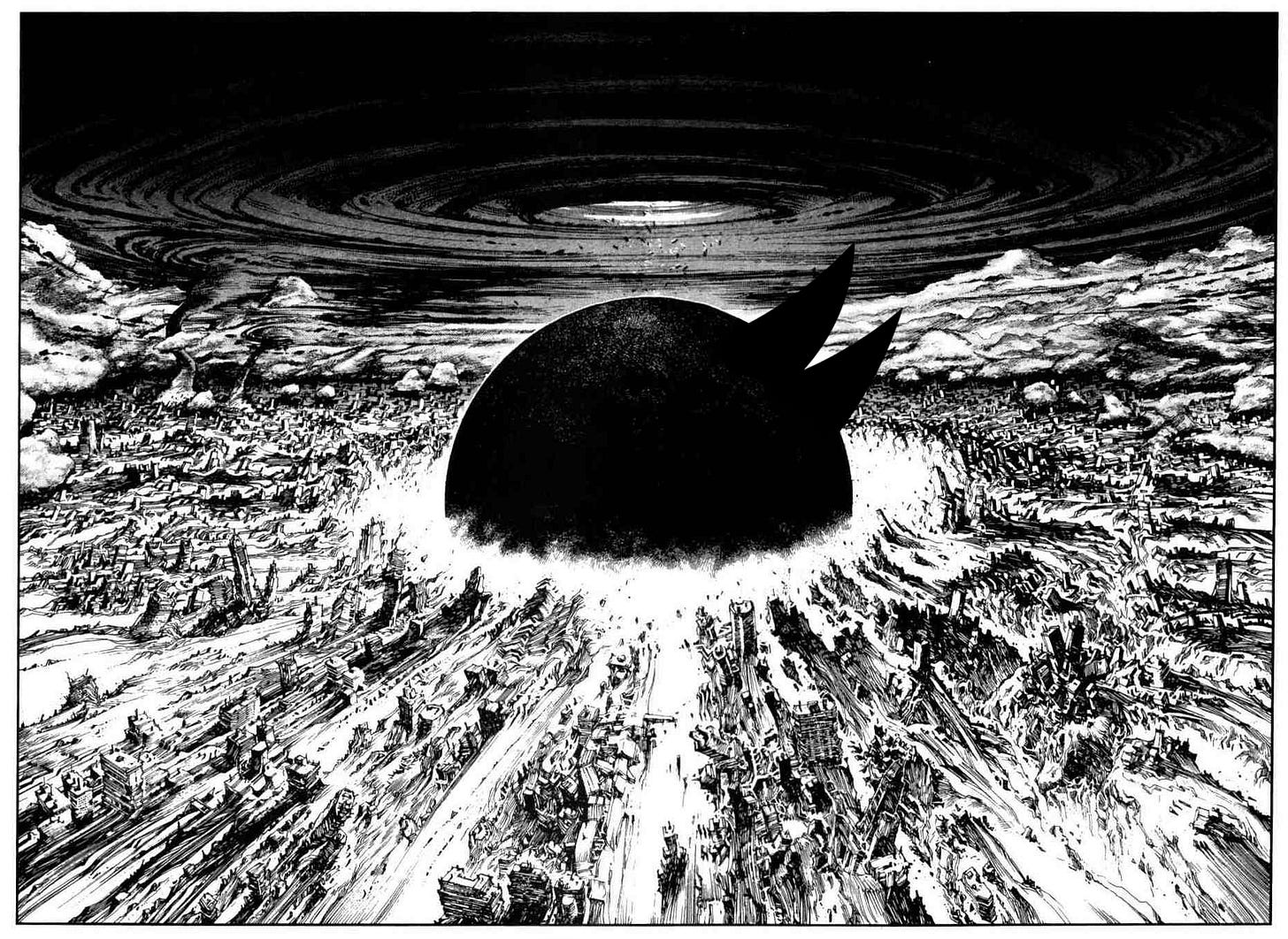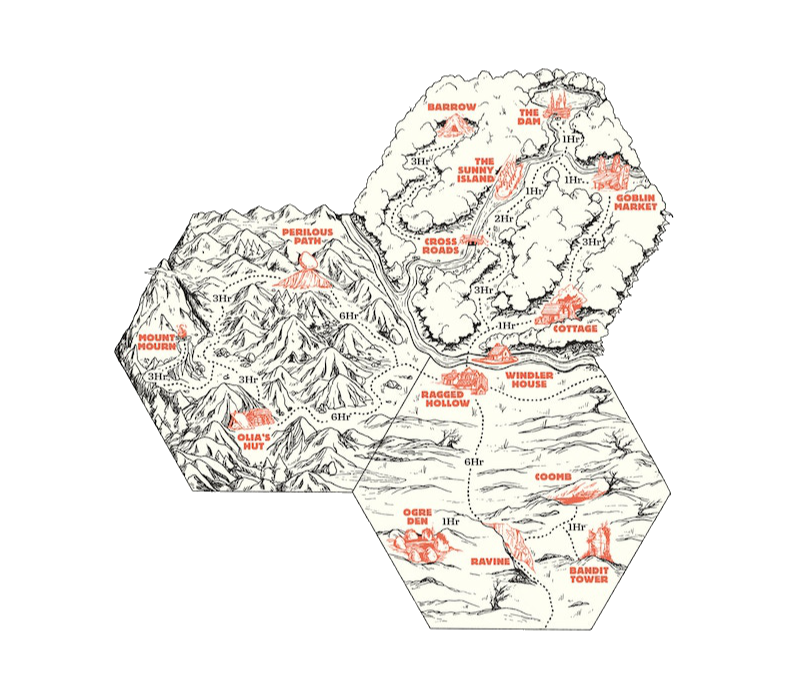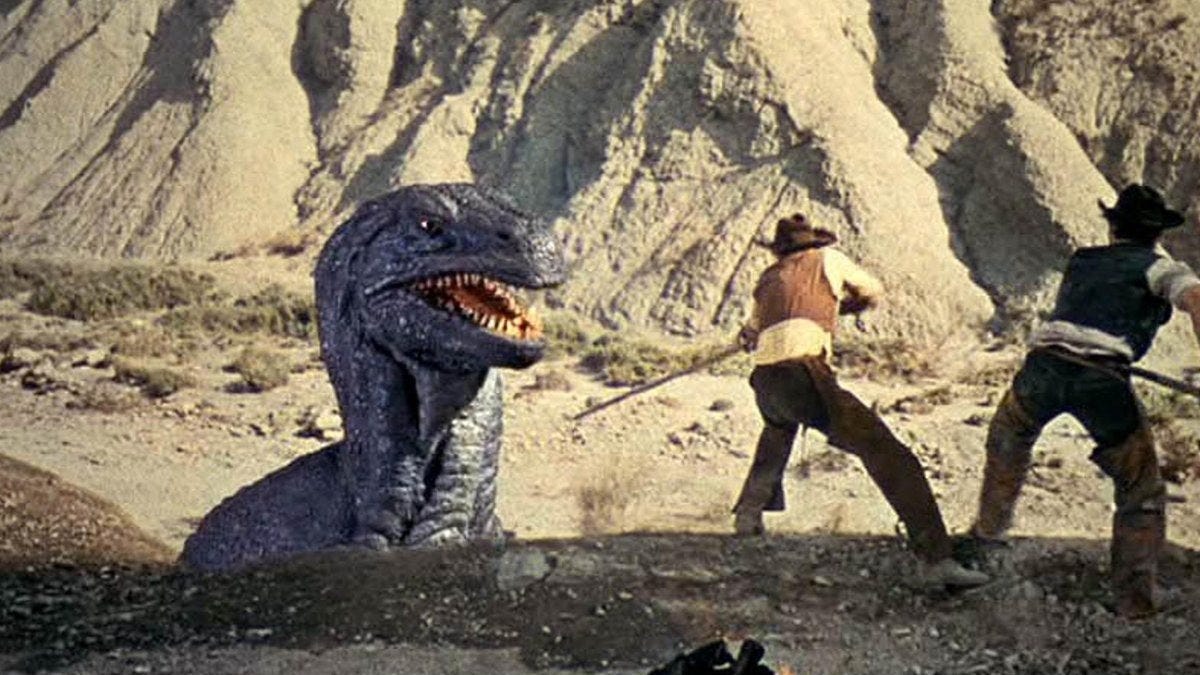The Exploding Plastic Inevitabletop
I promise I never meant this to be so long but brave your way through it & then discover a cool old school adventure some deeply strange miniatures, a great writer's newsletter & much much more...
So, social media’s idiot king has finally done it and, in a manner so half arsed that even most tabletop game publishers could only stare in admiration, killed off the globally recognised Twitter brand in favour of the painfully 90s X. Now, whilst watching a billionaire beclown themselves on a daily basis will never grow old, this incoherent virtual vandalism will, of course, have consequences for us all.
Notwithstanding the really serious “real world” stuff which is just too depressing to think about right now, the increasingly rapid fragmentation of social media will inevitably have a negative impact on the tabletop game “community”. Twitter X may have been a virulently toxic place at times but it is also still a place where everyday we stumble across strange new zines by creators from all over the world, and can connect with people invested in this scene from Manila to Sao Paolo.
The truth is, as funny as watching an imbecile set fire to a medium sized country’s GDP is, X Twitter’s inevitable, even if protracted, demise will not just impact those whose livelihoods are majorly dependent upon their presence there but on the health of the scene itself.
We’ve said it before but tabletop games, and RPGs especially, have been blighted for generations by what could best be described as institutional amnesia. So much knowledge has been repeatedly lost down the years, whether due to the scene’s inward looking nature meaning it never left its local group in the first place, or was only recorded in long lost 70s zines, long abandoned Tumblr pages, nuked from orbit when G+ was closed down, buried 45 minutes into a YouTube video and so on and so on.
And by lost knowledge I don’t just mean a particularly great Traveller adventure or a set of heroically complicated rules for robots in Warhammer. Rather I mean the hidden why's as much as the explicit how's that underpin those rules and modes of play and shed light on why games made in one country or region might have a completely antithetical philosophy or evolutionary path to what we consider to be the norm.
The result is that it feels like we’re constantly reinventing the wheel and playing catch up, often blinded not just to what games have been in the past but what they could be in the future, like some Greek tragedy doomed to rediscover Free Kriegsspiel games once every few years.
In this vein RPG designer Snow published an interesting blog post this week that is well worth reading. In it they discuss how a lack of critical culture and sense - or indeed record - of RPG history is holding us back and, not least, affects our perception of the relative maturity of tabletop games as compared to its contemporary, video games.
Despite their avowed lack of interest in much of what is considered “important” in game design Snow does provide a solid reading list of games that have done or are doing something interesting with the medium. But my key takeaway was that it’s not just finally discovering the perfect rule for grappling that we’ve lost for a lack of a more critical RPG culture and regular Alexandrian Library style infernos but a deeper understanding of tabletop games as a whole and what they can be.
Ultimately this is all something that I suspect plays no small part in the infuriatingly common perception that RPGs come in one dragon sized shape and in many way was one of the main reasons I set fire to my savings account and started Wyrd Science. To not just add to the weight of rules and adventures out there* but rather document the culture of gaming itself and try to preserve the stories behind our games and of the people who both make and play them.
Importantly for me this also includes all the non gaming “stuff” - music, literature, film, comics, history, folklore and yes politics - that both influences them and in turn is influenced by them. It’s this, often seemingly intangible, stuff that I believe is as vital to our understanding of gaming culture as what makes it into our core rule books.
That’s not to say that everything must be a grand artistic statement or loaded down with meaning, sometimes a dungeon crawl is just a dungeon crawl but much like a music documentary series such as the brilliant 1971 illuminates albums like Exile on Main Street or What’s Going On? in a way the sheet music can’t, just knowing something about, for example, 1980s British heavy metal or hooliganism gives us a better picture of why Warhammer turned out just how it did.
Sadly it feels like this idea of tabletop games as an important cultural touchstone is nowhere near as widespread as it should be, especially amongst those with the most power in the business, but still I get a sense things are changing for the better and in this regard we are at last slowly starting to catch up with those in the video game industry.
Honestly much as I’m proud of our first four issues I believe they’re a long, long way from where I hope us to one day be but still if we can survive a few issues more then hopefully, alongside the new wave of brilliant books on the subject by the likes of Shannon Appelcline and Jon Peterson, we might play some small part in changing that attitude and preserving some of this knowledge for when the next conflagration inevitably strikes.
In the meantime on a more practical level we suggest you hunt out the creators and publishers you like and sign up to their mailing lists, find some interesting writers and support them wherever they write and we’ll just keep doing what we do, which right now seems to mainly involve creating new accounts on a seemingly infinite number of social media sites** all whilst trying to get issue 5 finally finished.
Right, if you have somehow made it this far then honestly I’m impressed, but you will be rewarded with some cool stuff below that we think you should definitely check out including an old school setting adventure from the excellent Merry Mushmen to some wonderfully weird miniatures that really no desk/gaming shelf should be without.
Do let us know what you think about all this and the strange quirks of gaming culture what you think we should be trying to preserve but in the meantime, as ever, thanks for reading and do enjoy the rest of this week’s Gazetteer.
John x
*As it happens we may well be doing that too with our, hopefully, soon to be launched sister publication, The Augean Stable, but more on that anon…
** if anyone has a Blue Sky invite send one our way xx
Nightmare Over Ragged Hollow
Whether releasing the essential ‘Old School Gaming Bric-a-Brac’ KNOCK!, one of our favourite bestiaries of recent times or the excellent eldritch sword & sorcery RPG Black Sword Hack, French duo The Merry Mushmen cannot miss right now.
Looking likely to maintain that hot streak is Nightmare Over Ragged Hollow, a standalone adventure written by Joseph R. Lewis designed for use with the ever reliable Old School Essentials (other retroclones are of course available).
A sandbox adventure based around the eponymous town, surrounded on all sides by danger and adventure, and straddles the line between the “classics of dungeonverse fantasy and the whimsy of the folk tales”.
Stray beyond the relative safety of Ragged Hollows’ walls and you’ll find a land of snow capped peaks, dark forests, ruined temples and best forgotten barrows to explore and prod with your 10ft pole.
Originally self-published in 2020, Ragged Hollow has now been expanded and reworked to be fully OSR friendly, is fully illustrated courtesy of French artist Li-An and has been blessed with the graphic design skills of chief Art-Mushman Olivier. What more could you ask for?
Campaign ends: August 2
Medieval Marginalia Miniatures 3
There are many things that cause me to impotently shake my fist at Games Workshop but the quality of their miniatures is never one, and their design studio’s hit rate is a pretty good reason that the company currently makes up about 70% of the UK economy.
Still, as in all things to do with our odd little hobbies it pays to stray off the beaten path. Whether it’s Bad Squidoo’s warrior women (& capybaras, natch), Westfalia’s dark designs, Fenris Games’ battle-axe bearing beavers or whatever the hell it is that Crooked Dice are making this week, there’s a lot more to enjoy in the world of miniatures than just more space marines.
Which brings us to Andrew May’s Medieval Marginalia Miniatures, the 3rd series of which are currently up on Kickstarter. These are, as you may have surmised, 28mm scale models based upon the bewilderingly strange demonic critters that you will often find lurking in the corners of medieval manuscripts or casually strutting through the paintings of an artist like Bosch, merrily parping a tune on their arse trumpet.
They are, in a word, wonderful and whilst I have absolutely no idea what game I’d play with these that’s half the fun, hell i’d be inspired to write my own just to have an excuse to push these weird little freaks around the table. More of this please.
Campaign ends: July 31
Monstrorum Liber
Last week we mentioned our growing addiction to newsletters and said we’d start recommending more, and so to mix things up a bit I thought we’d follow through on a promise for once. Whilst there’s a plethora of great newsletters out there focused on games (and again you can find several of our favourites tipped here) I thought we’d kick this off with something a little different, author Josh Reynolds’ Monstrorum Liber.
As those who have read our first issue will know Carolina born, Sheffield based Reynolds is a writer of fantasy, science fiction and horror, responsible for some of the best Warhammer (of all flavours) novels around, as well as books based on games such as Arkham Horror and his own series such as those featuring paranormal detective and ‘Royal Occultist’, Charles St. Cyprian.
Josh’s monthly newsletter then is not only a useful tool for keeping up to date with this prolific writer’s published works but also provides an often candid look behind the scenes with an ongoing scorecard of his successes and failures pitching stories to publishers accompanied by occasional asides about the business of being a writer today.
But that’s not all, and alongside this look at the sausage factory in action you’ll also find short stories, extracts from longer works and short essays on the stories (often pulp), films (often monster movies), authors (often long dead) and miscellanea (often strange & esoteric) that have inspired him in some way.
It’s fair to say you’ll almost always come away from each newsletter having added something new (or indeed old) to your must read/watch/cleanse from this earth with holy fire list.
A collection of other things, both interesting and inspiring, gaming related and not, culled from around the web...
Whilst the middle of a summer where half of Europe is ablaze probably isn’t when you’d normally be thinking about buying a blanket, Wyrd Science favourite Sin Eater are taking orders, up until August 1st, on a new run of their gorgeous All Is Pushing Through throws. Folk horror never felt so cosy.
Ok, admittedly we’re suckers for a bit of good graphic design but still we’re absolutely taken by the whole vibe that, of all things, puzzle publisher Le Puzz has going on here.
Yochai Gal & Brad Kerr’s podcast Between Two Cairns is one of our favourite listens at the moment, and this latest episode looking back over Gary Gygax’s iconic AD&D module Against The Giants, with guest Sam Mameli, is a great place to jump in.
Over on
TwitterX RPG writer Michael Prescott took a look at how some recent’ish games like Brindlewood Bay & Blades in the Dark handle mysteries and in turn conversation at the table (available as a blog post here) that seems to be remarkably popular. Someone should really do a deep dive into this, oh!Many of you will already be familiar with Emiel Boven’s work through his art in several of the best indie RPGs of recent times (plus of course Wyrd Science issue 3) or his own Electrum Archive, and if you’re not then you should make yourself so.
Anyway, turns out he can code a pretty fun little video game too, and we’ve spent too much time over the past couple of weeks playing Shrine Warden, a simple little rouguelike that sees you battling through 15 NES Zelda like levels filled with evil eyeballs and appears to be the prelude to something more involved.For a while I thought I might be able to comfortably ignore the upcoming new teeny tiny epic Warhammer 40K game, unfortunately many happy if hazy memories of pushing little Land Raiders around my mate’s living room as a kid have all come flooding back… Just when you think you’re out…
The most excellent folks over at Exalted Funeral are having a summer sale, with everything on the site between 20 & 40% reduced. A good time to grab one of our back issues if you’re stateside.
Like a lot of people who grew up in the 80s I spent a fair amount of time pumping 10p coins into arcade machines, which basically means I’m going to need a lot more of you to buy Wyrd Science so I can buy myself one of these new Atari stand up arcade cabinets and get on with the serious, adult business of making my flat looks like Tom Hanks’s from BIG. Please xxx












Snow's article really lit a fire under me (in a good way). Roleplaying games have a fraction of the scholarship and ecosystem of other creative endeavors. And a lot of us ask, "why?"
Putting aside the pure difference in scale. After years of this conversation, I still haven't read a satisfying argument that interrogates this difference without blaming, or at least whinging about individual effort or community platforms. Clearly, the passion and sub-communities are as strong as that of indie movies, punk music, and pulp fiction. People are spending their nights and weekends writing and talking about rpgs. Some people devote their entire lives to it.
My thesis: "capitalism." Capitalism has made itself essential to the survival of everything. What's at the heart of every other industry's scholarship or touchstone? It's not purely passion or skill, it's profitability. The New Yorker made people rich. Writing books about the punk scene made people rich. Cataloging the queer history of Greenwich Village made people rich. Not the members of that community. Not necessarily the authors. But someone profited and fueled the fire. The problem is that the mutual benefits were temporary. Ask any punk scholar, academic, or historian and they'll tell you it's getting worse. I've had mentors say, "I can't imagine building anything in today's world." Everything capitalists helped in building, they're now absorbing and stripping for parts.
I think rpgs found their profitability too late for early capitalism but just in time for late stage capitalism. Except for D&D (and look at how that's going).
Anyway, I trade my short essay for this short essay. I loved reading it. Keep asking the hard questions and I'll keep reading them.
Let me know when you get your Atari arcade set up. I'll start saving my US quarters now, and hopefully the exchange rate will be kind when I come over to play at your flat!